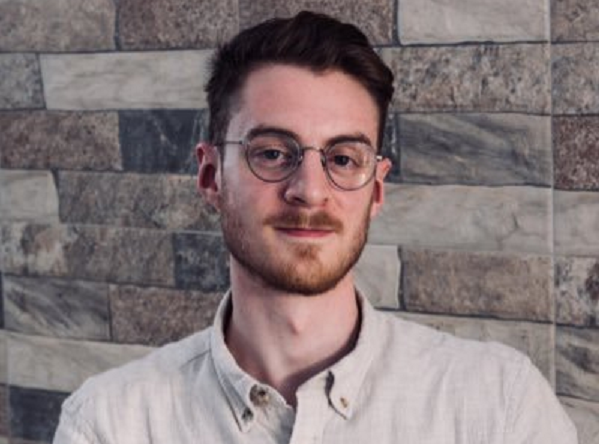In mid-April, Russian law enforcement arrested and charged Mikhail Afanasyev, editor-in-chief of online magazine Novy Fokus, with spreading “fake” information about the military. They searched his home, along with the homes of employees of another Siberian newspaper, Listok, and their offices. Listok’s publisher, Sergey Mikhaylov, was similarly arrested for publishing “fakes”.
Russian authorities have sought to aggressively suppress critical coverage of the war in Ukraine. On the day of the 24 February invasion, Russia’s state media regulator said the press “must only use information and data received from official Russian sources”.
Authorities termed the invasion a “special operation” and prohibited referring to the war as “war”.
In March, the government amended Russia’s criminal code to impose jail time for spreading “fakes” about the military. Journalists have been arrested for “discrediting the army” and detained for covering anti-war protests.
But this is not the world’s only conflict and the Kremlin’s tactics are not unique.
When conflict in Ethiopia broke out in early November 2020, Prime Minister Abiy Ahmed referred to it as a “law enforcement operation”. To call it “civil war”, his government said at the time, would be a “misrepresentation”.
From the beginning, journalists were restricted in their ability to cover the escalating hostilities and press freedom violations mounted apace. Journalists were arrested and held without charge on accusations of supporting the Tigray People’s Liberation Front (TPLF), a political group fighting Abiy’s government. In July 2021, Ethiopia’s media regulator briefly suspended the Addis Standard news website for allegedly advancing the agenda of the TPLF, which had been declared a terrorist organisation. Addis Standard had legitimised the group by calling it a “Defence Force”, the regulator said.
In early November 2021, Ethiopia’s federal government declared a state of emergency, which prohibited media and journalists from “providing direct or indirect, moral or material support to terrorist organisations”. Critical journalism about the war was effectively banned and numerous journalists were detained for allegedly violating the new regulations.
The state of emergency was lifted in February, but at least two journalists arrested in November 2021 — Dessu Dulla and Bikila Amenu — remain behind bars. They are due back in court on 3 May, World Press Freedom Day.
On the other side of the continent, governments in the Sahel continue to battle jihadist militancy and have increasingly restricted journalists’ coverage of the fighting.
In March, Burkina Faso’s military government, which took control of the country in a January coup, warned against publishing “false information” about the activities of its armed forces.
“[T]here will be no impunity for the authors of publications and other acts of a subversive nature, undermining public order, social cohesion and the morale of the troops,” read a 15 March press release. The warning followed amendments to the penal code made in 2019 that mandated government “authorisation” of information published from the scene of a terrorist attack. Defy this regulation and risk jail time.
“When it comes to terrorist attacks, it is even the real information that disturbs the authority the most,” Burkinabe media leaders wrote in an open letter on 25 April, detailing escalating press freedom concerns.
Similarly, on 16 March, Malian authorities ordered Radio France Internationale (RFI) and France 24 to suspend broadcasting in the country over “false allegations” about their armed forces, a decision made “definitive” in late April. Local outlets were also barred from distributing RFI and France 24’s content. Days earlier, RFI had published two reports on alleged abuses by Mali’s military, fighting alongside Russian mercenaries.
Accreditation processes for foreign journalists have also been suspended in Mali, limiting the ability to report on conflict in the country and the military government that took power in a May 2021 coup.
Sambi Touré, director of the Malian government’s information centre, did not directly answer my questions about the suspensions. Instead, he countered with a request for comment from the Committee to Protect Journalists (CPJ), the organisation for which I work, on the suspension of Russian media outlets by the EU.
In early March, the EU suspended Russian state-backed broadcasters Russia Today (RT) and Sputnik, alleging “disinformation and information manipulation” related to the Russia-Ukraine war.
CPJ is investigating implementation of the suspension and has joined calls for governments, including the US and the EU, to respect freedom of expression and access to information in their responses to the conflict. CPJ has also reported on the US government’s aggressive efforts to quell national security leaks and whistle-blowers, including through legal action.
Tightened controls over what can be reported have, of course, been introduced on top of the physical dangers of reporting amid conflict. At least 602 journalists have been killed covering war since CPJ began keeping records in 1992. So far this year, at least nine journalists have been killed while covering that beat — seven in Ukraine, one in Chad and one in Myanmar, where violence has surged since the February 2021 military coup and press freedom has deteriorated dramatically.
Indian journalist Rohit Biswal was killed in February by an improvised explosive device while photographing Maoist rebel posters. During April last year, French journalist Olivier Dubois was kidnapped by Islamist militants in Mali’s Gao region and two journalists were killed by militants in eastern Burkina Faso.
It’s a situation that Yacouba Ladji Bama, editor-in-chief of Burkina Faso’s Courrier Confidentiel newspaper, described to me as “double insecurity”, with journalists being caught between the dangers of conflict and censorship. DM
Jonathan Rozen is senior researcher at the Committee to Protect Journalists
*This article was originally published by Daily Maverick.









